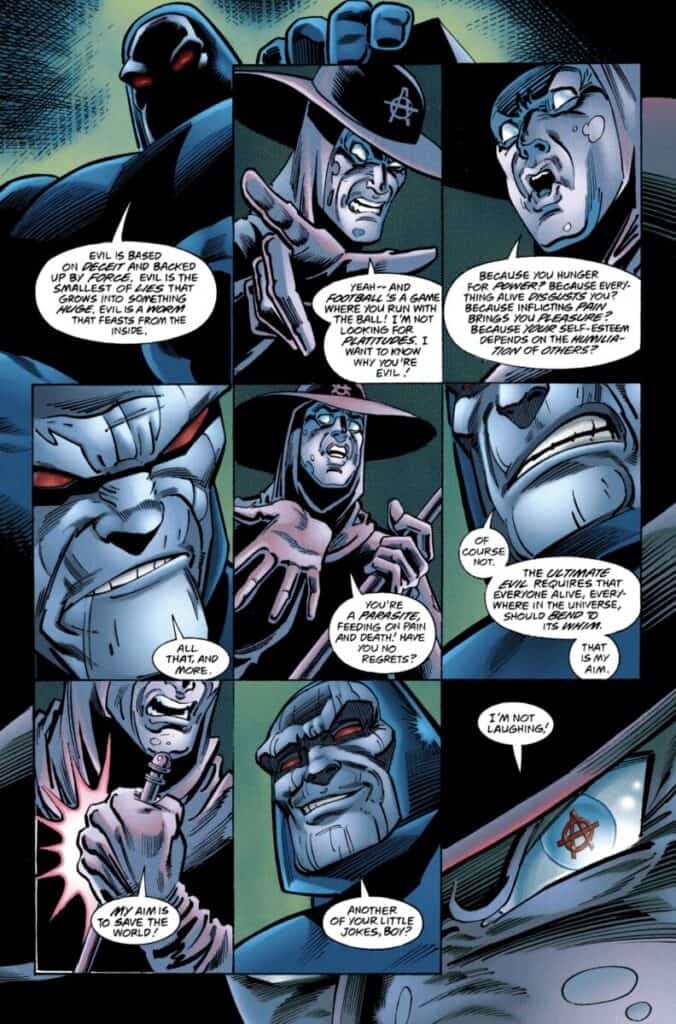***Contains Spoilers***
The 1997 Anarky series surprised me in ways I didn’t anticipate. It’s a four-issue miniseries that follows Lonnie Machin, aka Anarky, a teenage vigilante and tech-savvy philosopher, as he takes on systemic corruption and tries to make the world a better place. The story explores ambitious philosophical ideas like the nature of evil, whether a truly honest society is possible, and how power dynamics perpetuate inequality. Lonnie’s idealistic plan to “fix” society spirals into chaos, showcasing the limits of his intellect and the complexities of human behavior.
What I found most impactful about Anarky was its premise. Going in, I’ll admit I had low expectations—I assumed it would be a typical ‘90s comic that tried too hard to be edgy. But I was wrong. The series poses some profound questions: Why does evil exist? Could eradicating dishonesty cure it? Lonnie’s plan to force honesty across society, using a mix of hacking and mind-control, backfires spectacularly, leading to greater instability. Yet, his ideas about power structures and how politicians manipulate the masses to maintain control struck a chord with me. The critique of people blindly following authority resonated deeply and aligned with how I often see the world. It made me think about how systems are upheld not just by the powerful but by the complacency of the masses.

That said, Anarky has its flaws. While the philosophical musings are intriguing, they can feel heavy-handed at times, as though the comic is more interested in preaching than telling a story. Lonnie’s dialogue and inner monologues occasionally come across as forced, as if the writer were cramming in as many references to political and philosophical theories as possible. It also felt like the character was too self-assured for a teenager—his maturity and skill level seemed unrealistic, even for a prodigy. Additionally, the story’s pacing suffered from trying to juggle both heady ideas and action sequences. Some plot points felt rushed, and the ending, while thematically fitting, left me wanting more resolution.
Ultimately, I’d rate the Anarky miniseries 3 stars. It’s not perfect, but it’s a thought-provoking read that I plan to revisit. The ambitious exploration of moral and societal issues sets it apart from other comics of its era, even if the execution doesn’t always match the ambition. If you’re in the mood for a comic that challenges you to think while delivering an unconventional take on vigilantism, this series is worth checking out—just don’t expect perfection.
Feature Image Anarky #3 cover art by Laura Martin, Kevin Nowlan, Todd Klein and Norm Breyfogle
Keep NewToComics.com running with a donation or shopping with through our affiliates—your support helps maintain the site and continue guiding new readers into the world of comics!


